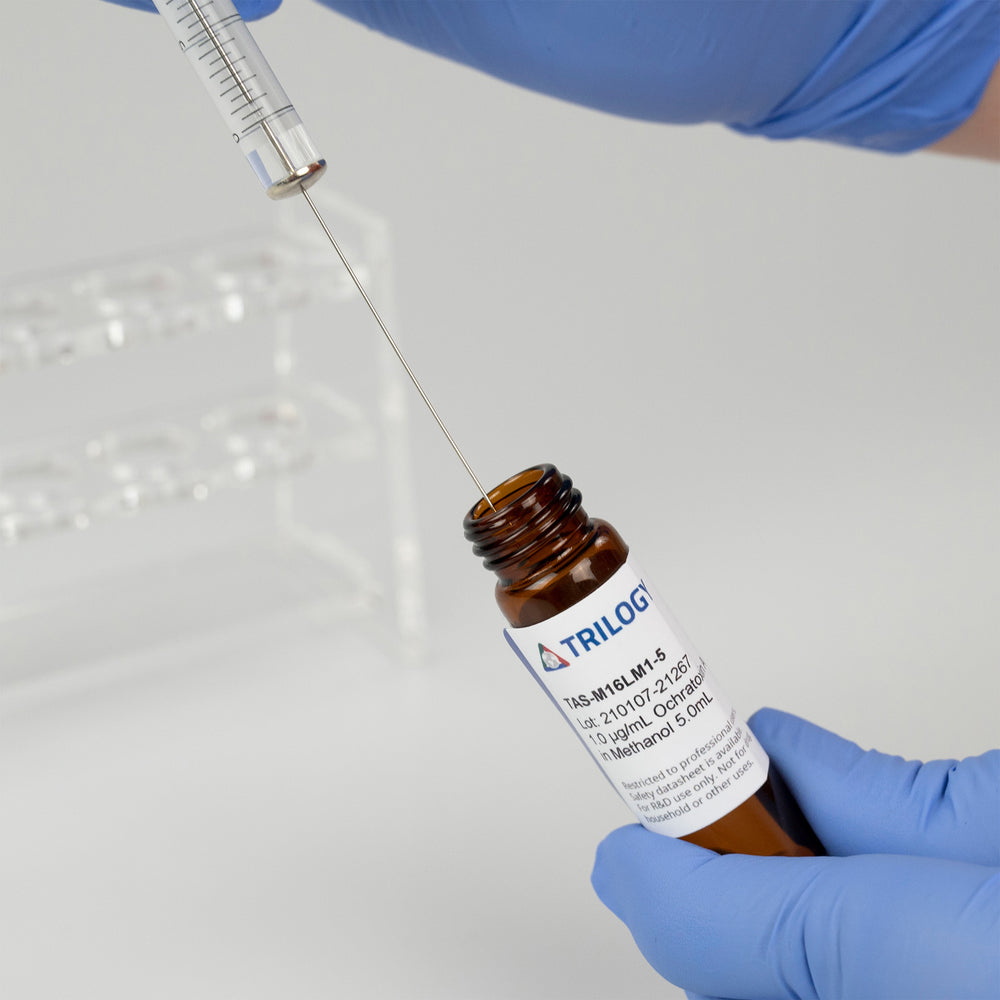The Season for Cider... and Patulin?
Kate Walkenhorst
November 17, 2017

Autumn is in full swing. The leaves have changed color and begun to fall off the trees, there is a crisp chill in the air, and the days have become shorter. Bonfires, pumpkin-flavored drinks, and football are all around. This time of the year is the perfect time to enjoy a nice warm mug of apple cider, but have you considered what toxins might be in that apple cider?
“The main mycotoxin concern with apples and apple products such as cider is patulin.”
The main mycotoxin concern with apples and apple products such as cider is patulin. Patulin is produced by the Penicillin and Aspergillus species, mainly by Penicillium expansum. Consumption of food products containing patulin can lead to stomach irritation, nausea and vomiting. The FDA has set an action level of 50 ppb for single strength juice and reconstituted single strength juice due to toxicity concerns, even though patulin is classified as a Group 3 carcinogen (not classifiable as to its carcinogenicity to humans).
A recent study in Michigan which used solid-phase extraction methodology found detectable levels of patulin in a number of samples obtained. The results of this study showed a wide range of patulin contamination, with 11.3% of the samples testing above the FDA action level. The conclusion of this study was that the industry needs to place a focus on the quality of apples used in production as well as take other measures, such as improving culling procedures, to reduce patulin concentrations in finished products. In March 2004, the FDA published a Juice HACCP Hazards and Controls Guidance (Hazard Analysis Critical Control Point), which includes guidelines for juice processors to evaluate their operations. In this guide, patulin is declared as a chemical hazard, and it is stated that caution should be taken to identify any patulin levels present to effectively keep this toxin from entering the consumer food chain.
An important part of monitoring patulin contamination is analytical testing. Here at Trilogy, we analyze apple products for patulin on a regular basis. While solid-phase extraction methodology can be employed, at Trilogy we use the AOAC Official Method #995.10 for extraction of patulin with high performance liquid chromatography (HPLC). We are an ISO 17025:2005 accredited laboratory, and patulin analysis is within our scope of accreditation. We are committed to helping keep your food, including apple cider, safe.
Related Products and Services
About Trilogy
Trilogy is a food and feed safety laboratory specializing in mycotoxins, mycotoxin binder analysis, biogenic amines and animal drug residue testing. Trilogy Analytical Laboratory opened its doors in 1999 when its founders recognized a need in the mycotoxin industry for quick result turn-around utilizing reliable reference methods provided in an analytical setting. One of the main pillars of Trilogy’s strategy is to operate using a comprehensive quality program that we can rely on to ensure performance parameters are met every single time. From this philosophy the Trilogy line of quality products was born with the mycotoxin industry in mind.
Media Contact: Lynette Hischier, l.hischier@trilogylab.com






